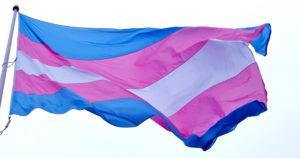“Nones” Demonstrate Largest Support for Transgender People
Despite the Trump administration’s fight to restrict and rollback federal protections for trans communities, a new Public Religion Research Institute (PRRI) survey finds Americans have grown increasingly more supportive of rights for transgender people. More than six in ten (62 percent) Americans say they’ve become more supportive toward transgender rights as compared to their views five years ago. Conversely, about a quarter (25 percent) say their views have become more opposed over the past few years.
Natalie Jackson, PhD, and director of research at PRRI, attributes the 25 percent to a “small segment of Americans, particularly conservative Republicans”
Notably, the survey reports every major religious group becoming more supportive of transgender rights over the last five years, including religiously unaffiliated Americans (69 percent), Catholics (68 percent), nonwhite Protestants (60 percent), and white mainline Protestants (57 percent). Even among white evangelical Protestants, slightly more than half (52 percent) report becoming more supportive of transgender rights over the last five years.
Those who identify as religiously unaffiliated show the greatest support in all categories. In Jackson’s estimation, “This is because they are not bound by the beliefs of a given religion. As a result, they are more likely across the board to express more progressive and liberal views.” For the purposes of this survey the “religiously unaffiliated” constituted those who self-identified as such. This survey did not further divide this category into atheists, agnostics, or humanists.
Discrimination against Transgender Individuals
The majority of the religiously unaffiliated (84 percent), white mainline Protestants (81 percent), Catholics (78 percent), nonwhite Protestants (76 percent), and white evangelical Protestants (73 percent) agree that transgender people face at least a little stigma in their community. However, when asked about specific forms of discrimination against transgender individuals, these numbers decrease, especially among white evangelical Protestants.
• Military Service: With the exception of white evangelical Protestants, every major religious group favored allowing transgender people to serve in the military, with the religiously unaffiliated showing the strongest support at 71 percent, followed by white mainline Protestants (65 percent), Catholics (65 percent), and non-white Protestants (63 percent). White evangelical Protestants were divided with 49 percent in favor and 46 percent oppose
• Bathroom Accommodations: Public opinion among white evangelical Protestants appears to have shifted as a result of the religious rights’ ongoing messaging in support of bathroom bills—legislation that requires transgender people to use bathrooms consistent with their sex assigned at birth. In 2017, 48 percent of white evangelical Protestants supported these bills, and their support is now up 11 points. In comparison, 50 percent of Catholics, 47 percent of nonwhite Protestants, 43 percent of white mainline Protestants and 34 percent of the religiously unaffiliated support this policy.
• Having a Transgender Friend: The majority of respondents would feel very or somewhat comfortable having a friend who is transgender. Again, the religiously unaffiliated show the most support at 72 percent followed by Catholics (62 percent), nonwhite Protestants (62 percent), white mainline Protestants (60 percent), and white evangelical Protestants (55 percent).
• Transgender Teachers: Religiously unaffiliated Americans are the most likely among religious groups to report feeling comfortable learning that a local elementary school teacher is transgender, with 67 percent of the population reporting so. The majority of Catholics (61 percent) along with a slim majority of white mainline Protestants (52 percent) and nonwhite Protestants (51 percent) also agree. However, the majority of white evangelical Protestants disagree, with only 42 percent showing their support.
• Having a Transgender Child: Americans who identified as religiously unaffiliated (56 percent) and Catholics (53 percent) are the most likely to report feeling very or somewhat comfortable with a transgender child. In comparison, a minority of white mainline Protestants (48 percent), nonwhite Protestants (40 percent), and white evangelical Protestants (38 percent) would be at least somewhat comfortable with a transgender child.
Discrimination against LGBT People
When asked broader questions relating to discrimination against all LGBT people, seven in ten (71 percent) Americans favor laws that would protect gay, lesbian, bisexual, and transgender people against discrimination in jobs, public accommodations, and housing. These numbers have remained approximately the same over the past five years.
While there are currently no US federal nondiscrimination protections for LGBT people, most respondents erroneously believe that it is illegal at the federal level for a doctor or health care professional to refuse treatment (79 percent), for a business to fire or deny someone a job (67 percent), for a property owner to refuse to rent a house or apartment (60 percent), or for a business owner to refuse to provide products or services (55 percent) because the individual is lesbian, gay, bisexual, or transgender. According to Jackson, only 4 percent of respondents answered all of these awareness-based questions correctly. This statistic points to the need for greater education pertaining to the lack of legal protections at the federal level for LGBT individuals in the United States.

